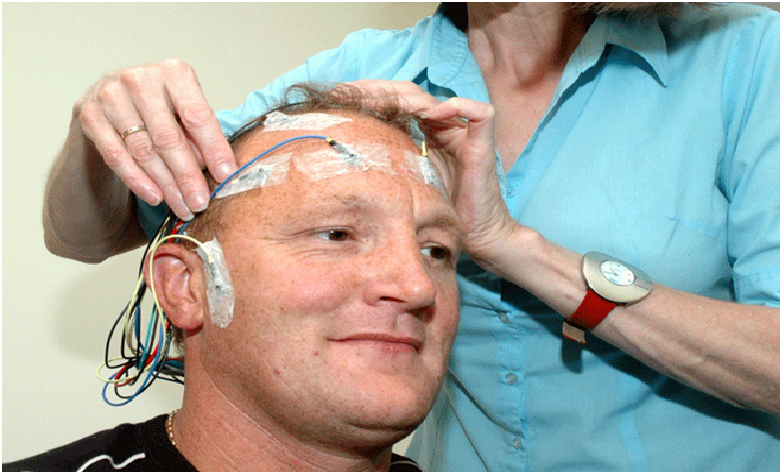How can Narcolepsy be Treated?
Having narcolepsy is quite frightening, to say the least. Not only do you have sudden sleep attacks but you also tend to lose control over muscles in your body. Activities that we do in our daily lives such as driving, running, cooking or even walking could become very dangerous due to narcolepsy.
The extreme amount of daytime sleepiness which is experienced by people who suffer from narcolepsy puts a strain on their work or school. Even though there has been no cure for narcolepsy just yet, there are different ways which can help in reducing the symptoms and also to improve the alertness.
What is Narcolepsy?
When someone suffers from a chronic neurological disorder which affects the part of the brain regulating your sleep cycle then that condition is referred to as narcolepsy. It is more common than you think since it affects at least 1 person among 2000 people. It causes an extreme amount of daytime sleepiness along with a loss in muscle control known as cataplexy which is often a result of strong emotions. This can result in anyone suffering from narcolepsy fall asleep during their normal daytime activities.
Even though these episodes only can last for a few moments, it can surely disrupt a person’s daily life. It takes a toll on the mental health of the person and also creates concentration and memory problems. It is through medical support, counseling, self-help strategies and a few lifestyle changes that one can combat the problem of narcolepsy.
There are many symptoms and signs when it comes to narcolepsy and most people tend to experience the symptoms first hand between the ages of 10 to 25. It is especially challenging for children since they start to experience a disruption in their education and career right from the beginning. Even though symptoms can vary from person to person it is important to remember that abnormal REM sleep and excessive daytime sleepiness are the main symptoms to look out for. Other symptoms include sleep paralysis, hallucinations and sudden loss over muscles.
Causes of Narcolepsy
Scientists have found out that the root cause for narcolepsy lies in the fact that people who suffer from it lack a chemical in their brain known as the orexin or hypocretin. This is the same chemical that regulates sleep and activates the arousal time. Narcoleptics tend to lack neurons which are responsible for secreting hypocretin. Hypocretin helps controlling full alertness along with stopping anyone falling asleep.
Medicines Which Are Used In Treating Narcolepsy
There are a number of different medicines which can be used to treat the symptoms of narcolepsy. While scientists have not yet come up with a full treatment plan to cure someone of this problem, there are drugs that can help in reducing the symptoms experienced by narcoleptics.
- Ritalin: This drug is quite effective in decreasing the symptom of daytime sleepiness in any person suffering from narcolepsy. It also helps in improving the alertness. Using this drug could lead to side effects that include irritability, headache, nervousness, and gastrointestinal problems. Some scientists are concerned over the usage of this drug for a long period of time since it can become ineffective over the course of time. Hence, most doctors recommend to their patients to stop taking this drug at least during the weekends when it is not necessary for them to be awake for certain activities.
- Provigil: In several studies, it has been seen that using the drug Provigil is quite effective in reducing the daytime sleepiness symptom. It is also known by the name Modafinil. Even though it does not cure sleep disorders it is quite useful in keeping someone awake. The side effects of Provigil include nausea, headache, nervousness, difficulty in falling asleep and dizziness. Many people who have used this drug have not experienced any kind of serious side effects. However, if you do experience any serious side effects such as an increased heart rate, mood changes confusion, agitation, depression etc then you should contact your doctor immediately.
- Nuvigil: A similar drug to Provigil. This one too is quite affecting in reducing the symptom of daytime sleepiness. The most common side effects include nausea and headache. Another name for this drug is Armodafinil.
- Antidepressants: Prozac, Tofranil, and Anafranil are tri-cyclic antidepressants that are used to stop the symptoms that are experienced in Narcolepsy. These drugs reduce the frequency of the loss of control over muscles (cataplexy). The side effects of these drugs include weight gain, dry mouth, fatigue, stomach upset, irregular heartbeat etc. Sexual dysfunction is a common symptom that is experienced as well after taking these drugs.
Alternatives for Provigil
Depending on the severity of your symptoms your doctor will prescribe you the medications he thinks would be the best in controlling the symptoms. If a severe amount of side effect is experienced with Provigil it is best for you to contact your doctor so that he can recommend you alternatives to this drug such as Nuvigil, Xyrem, Ritalin etc.

